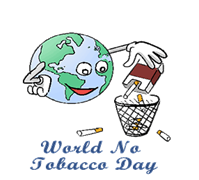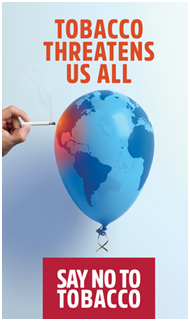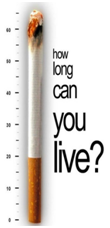Are you a new member? Sign up now
Login area
| Sign up

Date: 31/05/2017
 Today (31 May) is the World No Tobacco Day to remind each one of us that we should confront the global tobacco crisis because it affects us all. Here are some quick facts about smoking that you should know:
Today (31 May) is the World No Tobacco Day to remind each one of us that we should confront the global tobacco crisis because it affects us all. Here are some quick facts about smoking that you should know:- Tobacco kills more than 7 million people worldwide; and the number keeps on rising to reach almost 9 millions in 2030.
- For every 1 person who died from smoking-related diseases, there are 30 persons who are suffering from related morbidities.
- Smokers are more likely to have , yellow teeth, acne, smell and have a bad breath

- Smoking is a risk factor for different types of cancers especially lung cancer, heart diseases, diabetes, COPD (chronic obstructive pulmonary diseases), sexual weakness, weak immune system and many others

- On average, non-smokers live 10 years longer than smokers
- There are more than 7000 chemical in tobacco smoke, at least 250 of them are toxic and more than 70 are carcinogenic
- Narguile smokers absorb more toxicants that cigarettes smokers
- Smoking in pregnancy can lead to birth defects and is extremely harmful for the baby
- There is no safe level of exposure to tobacco or a safe product even e-cigarettes, smokeless tobacco and filters are not recommended
- More than 31 out of 100 high school students reported to use tobacco products
- Second-hand smoking, the smoke that fills enclosed spaces when people are using tobacco products and inhaled by the surroundings,
 causes around 900 000 premature death each year
causes around 900 000 premature death each year
- In Lebanon, the average of smokers, which is 45% for males and 38% for females is highly significant, especially in
 comparison with the regional MENA average (38% for males, 7% for females)
comparison with the regional MENA average (38% for males, 7% for females)
- It is never too late to quit!
Sitemap 

© Copyrights reserved to Ministry of Public Health 2026


